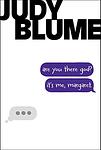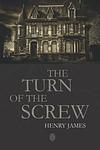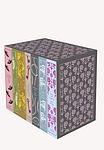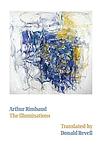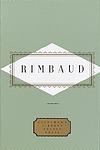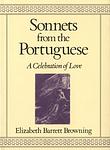The Greatest "Fiction, Correspondence" Books of All Time
Click to learn how this list is calculated.
This list represents a comprehensive and trusted collection of the greatest books. Developed through a specialized algorithm, it brings together 300 'best of' book lists to form a definitive guide to the world's most acclaimed books. For those interested in how these books are chosen, additional details can be found on the rankings page.
Genres
The category of "Correspondence" in books refers to a collection of written exchanges between two or more individuals, typically in the form of letters, emails, or other forms of written communication. These books often provide a unique insight into the personal lives, thoughts, and experiences of the correspondents, and can cover a wide range of topics such as love, politics, philosophy, and more. They offer a glimpse into the art of letter writing and the power of written communication to connect people across time and distance.
Countries
Date Range
Reading Statistics
Click the button below to see how many of these books you've read!
Download
If you're interested in downloading this list as a CSV file for use in a spreadsheet application, you can easily do so by clicking the button below. Please note that to ensure a manageable file size and faster download, the CSV will include details for only the first 500 books.
Download-
1. Nineteen Eighty Four by George Orwell
Set in a dystopian future, the novel presents a society under the total control of a totalitarian regime, led by the omnipresent Big Brother. The protagonist, a low-ranking member of 'the Party', begins to question the regime and falls in love with a woman, an act of rebellion in a world where independent thought, dissent, and love are prohibited. The novel explores themes of surveillance, censorship, and the manipulation of truth.
-
2. Uncle Tom's Cabin by Harriet Beecher Stowe
This renowned novel provides a harsh critique of American slavery through the story of Uncle Tom, a long-suffering black slave. The narrative follows Tom as he is sold and transported to the harsh South, encountering a variety of characters, both kind and cruel. The novel powerfully explores themes of faith, the immorality of slavery, and the concept of humanity, ultimately contributing to the abolitionist cause and leaving a significant impact on the American perception of slavery.
-
3. Are You There God? It's Me, Margaret by Judy Blume
The book is a coming-of-age story about a sixth-grade girl who is growing up without a religious affiliation, due to her parents' interfaith marriage. The protagonist is in search of a single religion while also confronting typical pre-teen issues such as buying her first bra, having her first period, coping with crushes and the changes that come with growing up. The book explores themes of friendship, religion, love, and self-identity.
-
4. The Turn of the Screw by Henry James
A young governess is hired to care for two children at a remote English estate. However, she soon becomes convinced that the grounds are haunted by two former employees who have taken control of the children. As she fights to free the children from these apparitions, the line between reality and her own fears becomes increasingly blurred, leading to a chilling and ambiguous conclusion.
-
5. Metamorphoses by Ovid
"Metamorphoses" is a classical epic poem that narrates the history of the world from its creation to the deification of Julius Caesar within a loose mythico-historical framework. The narrative is filled with stories of transformation, focusing on myths and legends of the Greek and Roman world. The tales, which include the stories of Daedalus and Icarus, King Midas, and Pyramus and Thisbe, among others, are all linked by the common theme of transformation, often as a punishment or reward from the gods.
-
6. Utopia by Thomas More
This book is a fictional work that presents a detailed description of an ideal society on an imaginary island located in the Atlantic Ocean. The narrative is presented as a dialogue between the author's character and a traveler who has visited the island. The society described is devoid of private property, with citizens living in communal dwellings, and it promotes education, religious tolerance, and a welfare state. The book explores political, social, and religious customs, providing a critique of European society and offering an alternative model of social organization.
-
7. Northanger Abbey by Jane Austen
"Northanger Abbey" is a coming-of-age novel that follows the story of Catherine Morland, a young and naive girl who is invited to stay with the wealthy Tilney family at their estate, Northanger Abbey. Catherine's imagination is fueled by her love for gothic novels, leading her to create fantastical scenarios in her mind. As she navigates the complexities of society and falls in love, Catherine learns valuable lessons about the dangers of letting her imagination run wild and the importance of distinguishing reality from fiction.
-
8. The Poems of John Keats by John Keats
This book is a compilation of poems by a renowned Romantic poet, who is recognized for his eloquent and expressive use of language. It includes his most famous works, often exploring themes of love, beauty, mortality, and the human condition. The collection showcases the poet's unique ability to capture the intricacies of human emotions and the beauty of nature, making it a must-read for lovers of classic English literature and poetry.
-
9. Illuminations by Arthur Rimbaud
"Illuminations" is a collection of prose poems that delve into the author's vivid dreamlike visions and his exploration of his inner psyche. These poems are filled with symbolic imagery and metaphors that challenge traditional poetic norms. The author uses his work to express his disillusionment with the conventional world, his longing for spiritual enlightenment, and his quest for personal freedom. The collection is a testament to the author's innovative style and his significant influence on modernist literature.
-
10. Suite Française by Irène Némirovsky
"Suite Française" is a two-part novel set during the early years of World War II in France. The first part, "Storm in June," follows a group of Parisians as they flee the Nazi invasion. The second part, "Dolce," shows life in a small French village under German occupation. The novel explores themes of love, loss, and survival, and provides a unique perspective on life in France during the war. The book was written during the war but was not discovered and published until many years later.
-
11. Flowering Nettle by Harry Martinson
"Flowering Nettle" is a semi-autobiographical novel that follows the journey of a young boy who, after losing his parents, is sent to a rural village in Sweden to live with his aunt. The story details his experiences and struggles growing up in poverty, while also exploring his love for nature and the natural world. Despite his hardships, the protagonist manages to find beauty and solace in the world around him, ultimately expressing a profound sense of resilience and hope.
-
12. Collected Poems by Arthur Rimbaud
"Collected Poems" is a compilation of works by a renowned French poet, known for his influence on modern literature and arts, which prefigured surrealism. His poetry is characterized by its innovative use of symbolism and imagery that explores themes such as adolescence, rebellion, and the loss of innocence. The collection includes both his early works, filled with the youthful vitality and rebellious spirit, and his later, more introspective pieces.
-
13. The Burn: A Novel in Three Books : (late Sixties--early Seventies) by Vassily Aksyonov
"The Burn: A Novel in Three Books : (late Sixties--early Seventies)" is a historical novel that explores the cultural and political landscape of the Soviet Union during the late 1960s and early 1970s. The book follows a group of intellectuals, artists, and dissidents who are striving to preserve their individuality and freedom in a society that is increasingly oppressive and conformist. The narrative is punctuated by surreal and fantastical elements, reflecting the characters' struggle to maintain their sanity and dignity in a world that seems to be spiraling into madness.
-
14. Sonnets from the Portuguese by Elizabeth Barrett Browning
"Sonnets from the Portuguese" is a collection of 44 love sonnets that express the poet's intense and passionate love for her husband. The sonnets are renowned for their emotional intensity, personal depth, and lyrical beauty. They explore themes such as love, marriage, beauty, and the transience of life, and are considered some of the most famous love poems in the English language.
Reading Statistics
Click the button below to see how many of these books you've read!
Download
If you're interested in downloading this list as a CSV file for use in a spreadsheet application, you can easily do so by clicking the button below. Please note that to ensure a manageable file size and faster download, the CSV will include details for only the first 500 books.
Download

